Rec Sports
Special Olympics and Nike Announce Three-Year Partnership


[July 14, 2025] Special Olympics and Nike announced a three-year global partnership to further the longtime collaboration between the two global organizations to create access to sport for all youth. This new, global phase of the partnership elevates and expands upon Nike’s more than two decades of support of Special Olympics Oregon, recent support of Special Olympics Berlin and grants to other local Programs.
This partnership has been announced in tandem with Global Week of Inclusion (14 – 20 July), which is a week organized by Special Olympics every year marking the anniversary of the founding of Special Olympics. It is a worldwide celebration of unity, empowerment, and acceptance bringing together people with and without intellectual disabilities to foster inclusive communities. In 2025, we’re celebrating 57 years of Special Olympics and inviting our partners and the community to help amplify this milestone like never before.
Special Olympics (SO) and Nike are focused on setting a new standard for coach education and retention for Special Olympics Unified Sports®, the Special Olympics program where athletes with and without intellectual disabilities (ID) play together on the same team. This work is critical to the shared mission of sport for development, which is the intentional use of sport, physical activity, and play to promote positive social change. This partnership will be delivered through Special Olympics Unified Champion Schools® (UCS). The support to UCS will help advance Nike’s commitment to powering the future of youth sport where all youthhave access to sport. In addition to innovating their coach training for all Special Olympics Unified Sports coaches globally according to the most recent evidence-based and expert-informed guidance on quality and inclusive youth sport coaching.
The partnership will concentrate on four key communities: Oregon, Berlin, Johannesburg, and Tokyo. Nike will engage its employees as volunteers in all four communities as a key element of the partnership, beginning with employee volunteer opportunities at both Special Olympics Oregon and Special Olympics Berlin Summer Games this July.
“As a company founded by a coach and an athlete, we know that the role of a coach can be transformational and we are thrilled to expand our long-time commitment to Special Olympics with this global partnership to highlight the role coaches have to positively shape the youth sport experience. With Special Olympics, we’re expanding access to youth sport for more young people all around the world—so all youth have an opportunity to achieve their greatest potential.”
Vanessa Garcia-Brito, VP and Chief Impact Officer, Nike
“Our global partnership with Nike will strengthen our sport for development initiatives by expanding our world-class coaching tools and increasing gender parity in our Unified Sports programs.” said Mary Davis, CEO at Special Olympics International. “Utilizing our capabilities as a force for inclusive education, along with support from a fellow global sports leader in Nike, allows us to broaden the meaningful opportunities available to Special Olympics athletes and coaches.”
Over the course of the three-year partnership, Nike and Special Olympics will collaborate on updating Special Olympics’ Global Unified Sports Coach courses and train-the-trainer materials, leveraging Nike’s three decades of youth sport coaching experience and deep insights with global partners and experts focused on quality coaching that’s inclusive and welcoming to all youth. They will also work to recruit more Unified Sports coaches to more closely reflect community demographics—with the ambition of training and certifying more than 600 additional volunteer coaches across the four key communities. The two organizations also aim to create more opportunities for young women and girls to access Unified Sports.
“Coaching and supporting players in Unified Basketball games has been one of the most rewarding parts of my role. Seeing proud parents moved to tears as they watch their child achieve so much, witnessing Unified partners form genuine friendships with Special Olympics athletes, and watching teams play with respect—not dominance—fills me with pride,” said Jamaal Goodlow, Unified Basketball Coach of Parkrose High School in Portland, Oregon. “As a properly trained Unified coach, I know how essential it is to foster inclusion, teamwork, and mutual respect on and off the field.”
“As someone who grew up around both Nike and Special Olympics, I’ve seen firsthand the incredible ability these two organizations have to inspire the world over. This partnership reflects our shared belief that everyone is an athlete, and has the potential to achieve their best, and to be brave. Together, we’re not only raising the bar for coaches’ education and making sports more inclusive for all —we’re showing the world that when we Play Unified, we change mindsets, we change communities, and in the deepest way, we can change lives, including our own.”
David Evangelista, the newly-named incoming CEO of Special Olympics and current President and Managing Director of Special Olympics Europe Eurasia
Rec Sports
When private equity invests in youth sports facilities : NPR

NPR’s Juana Summers speaks with Luke Goldstein of The Lever, who wrote about the rise of private equity control of youth hockey facilities.
JUANA SUMMERS, HOST:
If you have kids and they play sports, maybe you’ve been tempted to reach for that video camera in your pocket, which also makes phone calls, and maybe grab a little footage. About a year ago, a U.S. senator was warned about that.
(SOUNDBITE OF ARCHIVED RECORDING)
CHRIS MURPHY: I was just told this last weekend that if I livestream my child’s hockey game, my kid’s team will be penalized and lose a place in the standings. Why is that?
SUMMERS: According to Connecticut Senator Chris Murphy, a Democrat, this is because a private equity company had bought up a bunch of ice rinks, installed video cameras, and all of them charged subscription fees to access their footage and prohibited folks from filming their kids playing hockey. A new report from The Lever examines how restrictive streaming practices have become widespread in youth hockey and increasingly in many youth sports held at corporate-owned facilities. Luke Goldstein’s article is headlined, “Wall Street Is Paywalling Your Kids’ Sports,” and Luke Goldstein is here in the studio with me now. Hi.
LUKE GOLDSTEIN: Hey. Thanks for having me.
SUMMERS: Thanks for being here. So Luke, I just want to start by asking you this – what Senator Chris Murphy had to say. Is his description of this phenomenon accurate? How do these recording and streaming services work?
GOLDSTEIN: Yeah. So what I kind of found from my reporting is that this is not just happening in youth hockey. This is really across the board for youth sports in general, which has become a booming industry. It generates about $40 billion…
SUMMERS: Yeah.
GOLDSTEIN: …In revenue each year, according to an Aspen Institute study from earlier this year. And, you know, those kind of eye-popping numbers have attracted the interest of Wall Street firms and, in particular, private equity. And, you know, they’ve been buying up and, you know, rolling up a lot of these youth sports, you know, facilities, the leagues, tournaments. And, you know, that’s leading to some pretty significant changes across the board. You know, one of the most dramatic changes is what’s happened with the streaming services now. You’re not allowed, at numerous, you know, rinks and other kinds of sports facilities, to record your own kids’…
SUMMERS: OK.
GOLDSTEIN: …Games, and you’re offered this package that you can pay. And sometimes that will cost more than the streaming costs for professional sports like ESPN.
SUMMERS: Luke, your article focuses largely on this one company that’s called Black Bear Sports Group. And we reached out to them for comment, and a spokesperson told us, and I’m quoting here, “parents are always welcome to record videos.” They said that the only restrictions were on livestreaming or broadcasting, citing safety and consent concerns. Does that square with what you heard in your reporting?
GOLDSTEIN: So before publishing the story, I had reached out to Black Bear Sports Group. And they had sent me, you know, a series of written responses, and prior to the publication of this article, did not dispute that parents were not allowed to record…
SUMMERS: OK.
GOLDSTEIN: …And livestream and broadcast. After the publication of this article, they’ve put out a statement that the only policy is against live streaming the games, you know, online on social media or other platforms. If you go to thelevernews.com and read the updated version of the story, I’ve actually obtained a contract between Black Bear’s streaming service, Black Bear TV, and one of its affiliated rinks. And you’ll see in the contract terms, in plain language, that it is not just banning the livestreaming of games. It actually has language that prohibits recording devices. And it says…
SUMMERS: Which could mean…
GOLDSTEIN: …Very clear…
SUMMERS: …Like, your cell phone, then, I’m guessing.
GOLDSTEIN: It actually does say your phone as well. It says iPad. It has a long list of all kinds of equipment. But there is a clear stipulation in these contracts that the terms have to be enforced by rink owners.
SUMMERS: In the statement that we got from Black Bear, they also said that their player participation rate of growth – it’s more than double the national average. They point out that they have saved dozens of struggling ice rinks. And they also maintain that they’re not owned by a private equity firm. What do you make of those remarks based on what you’ve learned?
GOLDSTEIN: My understanding is Black Bear Sports Group is a subsidiary of Blackstreet Capital, which is a private equity firm. And I think you can see, also, some parallels, you know, between the practices by both entities. Blackstreet is well-known for buying up small-, medium-sized companies that, you know, are distressed and have difficulties. They, you know, try to kind of make them a little bit leaner and then, you know, sell them off eventually. It’s a very expensive business now to run an ice rink. Many of them have struggled and are on the verge of bankruptcy or closing up. So I think there’s a much kind of longer story to tell of how Black Bear became the self-described largest ice hockey rink owner in the country.
It’s not just Black Bear. This is really a sea change that you’re seeing across youth sports in general. Overall, what you’re seeing here, because the costs of participating in youth sports across the board have gone up so dramatically, it is starting to cater to, frankly, just a wealthier customer base that’s willing to pay top dollar for, you know, a higher-quality streaming, you know, service that’s being offered.
SUMMERS: Luke Goldstein is an investigative journalist with The Lever news. Luke, thanks for your reporting.
GOLDSTEIN: Thanks. Thanks for having me.
Copyright © 2025 NPR. All rights reserved. Visit our website terms of use and permissions pages at www.npr.org for further information.
Accuracy and availability of NPR transcripts may vary. Transcript text may be revised to correct errors or match updates to audio. Audio on npr.org may be edited after its original broadcast or publication. The authoritative record of NPR’s programming is the audio record.
Rec Sports
Republican lawmaker wants to ban name, image and likeness deals in Ohio high schools
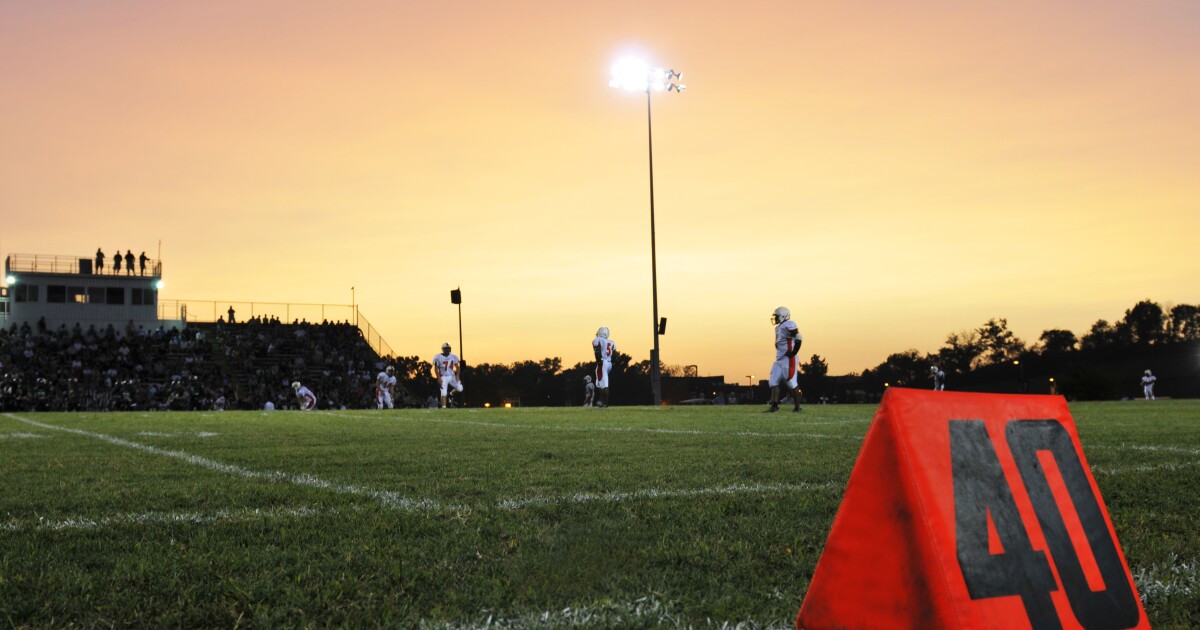
A day after Ohio became the 45th state to allow high school athletes to strike name, image and likeness deals, a Republican state lawmaker said he’s working on a bill to ban that practice.
The members of the Ohio High School Athletic Association voted to allow NIL deals Monday. The bill Rep. Adam Bird (R-New Richmond) is hoping to introduce would prohibit NIL payments to high school athletes.
“When you see the impact that NIL has had on college sports, it’s not been to the benefit of of what college sports should be all about,” Bird said in an interview. “And I think that that we are very much in danger of going down a similar path that is not good for high school students in Ohio by allowing this to go forward.”
Bird hasn’t introduced a bill yet but is talking to other lawmakers about it.
Bird cited a study of college athletes that showed rates of death by suicide doubled over a 20-year period, and is now the second-leading cause of death in that population.
“There’s a lot of pressure for young people today and I think when you start giving them money because of their talent you’re adding to the pressure,” Bird said. “We should not be creating a system that has more pressure on these kids. They should be enjoying and learning and growing in a holistic way because of the experience that we give them in team sports and this is not going down the right path.”
Bird added that public dollars spent on high school sports is intended to help all students: “All of the investment that we make in these facilities and to make these things happen it’s not so that the student can make money. That’s not what it’s about. That’s not why we do sports in Ohio.”
And Bird said it’s his impression most schools don’t want their students to enter into NIL deals. Of the 815 members of the OHSAA, 55% voted for the bylaw change to allow NIL contracts. The rest voted against it or didn’t vote.
“The Ohio High School Athletic Association didn’t really want to do this,” Bird said. “This has all been generated because a temporary restraining order from a single Franklin County judge…has forced OHSAA to go down a path that it didn’t want to go.”
A vote on NIL deals was likely to happen in May, but a lawsuit filed by star wide receiver Jamier Brown of Wayne High School in Dayton pushed it up. Last month Franklin County Judge Jaiza Page had ordered a 45-day pause on the OHSAA ban on NIL deals and set a hearing for December. Brown’s lawyer said the family is dropping the lawsuit.
“I think the majority of our schools are not crazy about the idea of NIL at the high school level,” said Tim Stried with the OHSAA. “Neither is the OHSAA, but as we all know, the courts have spoken many times. We cannot prevent a person from earning money on their name, image and likeness.”
Stired said the OHSAA had expected to be sued by a different athlete earlier this summer, so the organization was ready for the vote. And he said when college athletes were allowed to do NIL deals starting in 2019, that set the stage for what’s happening now.
“A student can get paid for a lot of things that they do well. But athletics was not one of those, and now it is,” Stried said.
Rec Sports
L.A. Phil guts East L.A. branch of Dudamel’s Youth Orchestra program
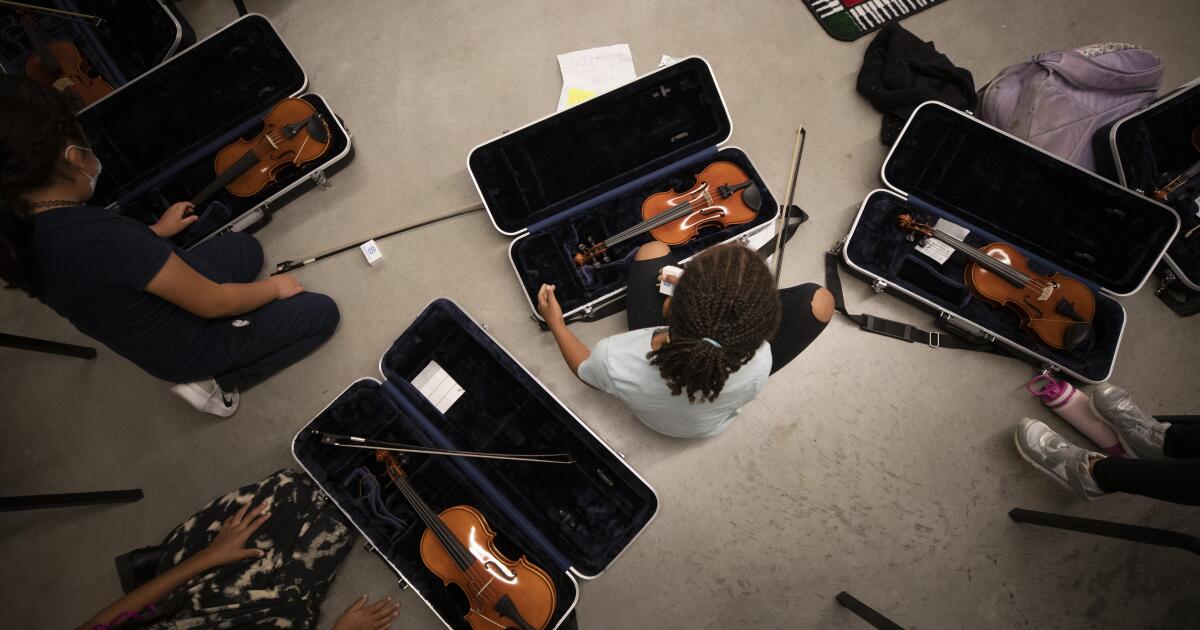
In the face of budget cuts, the Los Angeles Philharmonic is reducing its East Los Angeles youth orchestra program championed by outgoing star conductor Gustavo Dudamel by cutting staff and daily operations.
Last week, in an email to the students’ parents, the nonprofit organization announced that it would need to “significantly modify” the programming at the Esteban E. Torres High School site “due to unanticipated financial and funding challenges for the organization.”
The Youth Orchestra Los Angeles (YOLA) has offered a free musical education to students ages 5 through 18 since 2007. Run by the L.A. Phil, students get access to free instruments and get the firsthand experience of being in a musical ensemble. YOLA currently operates out of Inglewood, East L.A., Rampart District and Westlake/MacArthur Park. The only location subject to cuts has been the Torres site in East L.A., which serves 165 students.
Under these changes, practices for students will be halved, moving from four days of instruction to two days of rehearsal. All the teaching artists at the site were laid off, leaving two conductors to lead what remains of the program. These modifications will only apply to the higher-level students, as programming for the younger pupils (known as the Sprouts and the Explorers) will be gutted, with the option of moving to another YOLA site.
Spearheaded by Dudamel, the program is modeled after El Sistema, the publicly funded program where he first learned music in Venezuela. The conductor, who has been with the L.A. Phil since 2009, will be leaving the orchestra in June 2026.
Jules Levy, one of the 12 laid-off teaching artists, says that with these adjustments, about 80% of the students’ learning will be reduced.

Conductor Gustavo Dudamel rehearses with young musicians from around the country participating in the L.A. Phil’s annual YOLA National Program at Walt Disney Concert Hall in 2023.
(Dania Maxwell / Los Angeles Times)
“There wouldn’t be any music theory, music history and no singing. They’re going to come in and play in an orchestra, and won’t have any coaches to teach them,” said Levy, who has been a YOLA instructor since 2019. “No more studio classes, no private lessons, no master classes, and no sectionals.”
At Torres, Levy worked as a double bass coach and taught students across all age groups. He is also an alumnus of the program’s first iteration, saying it’s “the reason I am a successful musician today, but I also think about how many kids we just took that possibility away from.” When he had to explain the situation to his students, he says he was greeted with a lot of confusion and many teary eyes — as the community undergoes another unprecedented change.
“This is a community where we have students from East L.A. Some of these students have had their parents, their cousins and other family members abducted by ICE recently. This is one of L.A.’s most vulnerable communities,” Levy said.
These revisions were also announced days before the teaching artists voted to unionize, under the American Federation of Musicians of the United States and Canada.
In a statement to The Times, the L.A. Phil said they are “doing everything possible to support impacted students and staff, including placement at other YOLA sites and providing transportation when possible.”
“Our mission has always been to bring people together through the power of music and live performance, and we remain steadfast in our dedication to the families, musicians and employees who create our YOLA community,” wrote an L.A. Phil spokesperson.

YOLA institute students perform on stage during a Gracias Gustavo Community Block Party at the Judith and Thomas L. Beckmen YOLA Center in October.
(Etienne Laurent/For The Times)
When Karla Juarez, a parent of two students at YOLA Torres, found out about these cuts, her first instinct was to rally people together. She created an Instagram page, under the name @saveyolatorres and has been sharing messages from the community, trying to revive the program.
“We cannot give up. We, as parents, will stay committed and united. We’re going to do whatever it takes to continue the program,” said Juarez. “Our main focus is to fight for our kids and their futures.”
She has two children in the program, her 8-year-old son who was a Sprouts percussionist, and her 13-year-old daughter, Romina Sanchez, a cellist in the symphony orchestra. Juarez says her daughter has always had an interest in music, but YOLA helped bring out a new sense of confidence within her.
“I was honestly so devastated [about the cuts] because I love music. YOLA is like our home away from home,” said Sanchez. “I’m also very devastated, because I have to turn in my instrument. I’ve been with my cello for three years now.”
The 13-year-old musician says she is coming up with a plan to save up for a new cello or to figure out where she can rent one. Juarez works two jobs in order to support her family and she says they still “can’t afford private music lessons.” To her, the fight is about holding onto this kind of access for her children.
“We understand it’s a free program. We are grateful for that. But they cannot use our kids if they don’t follow [through with] their mission,” said Juarez. “Unfortunately, they are tarnishing Gustavo Dudamel’s legacy. They fed the [kids] a dream of learning to grow in music, and now they’re snatching that dream away.”
The YOLA Torres site will continue to operate as usual until Dec. 12, when the cuts will go into effect.
Rec Sports
Tucson Youth Cycling Partnership

TUCSON, Ariz. (Nov. 25, 2025) — Banner – University Medicine Tucson organized a 10-rider team for this year’s El Tour de Tucson on Saturday, Nov. 22, and partnered with El Grupo Youth Cycling to support youth sports.
As part of the partnership, Banner supplied El Grupo’s riders with functional cycling jerseys, which replaced the T-shirts youth athletes had previously worn on race day. The jerseys were modeled after the Banner University Medicine Tucson team design and inspired by the spotted pattern of the Gila monster.
Riders also received special treatment and shared a dedicated space with the Banner riders before and after the event to warm up, rest and enjoy post-ride pizza and refreshments.
“Our riders were excited to represent Banner – University Medicine with the custom jerseys, and they loved spending time at the Banner tent before and after the race,” said Jeff Cheever, programs and operations manager for El Grupo.
The El Grupo team included the 70 youth and coach riders who trained for three months and collectively rode more than 3,000 miles on Saturday.
This partnership aligns closely with Banner’s focus on healthy lifestyles and marked a meaningful collaboration between two local mission-driven, non-profit organizations dedicated to strengthening the community.
“El Tour de Tucson brought our community together around wellness, resilience and fun,” said Alison Flynn Gaffney, chief executive officer of Banner – University Medicine Tucson. “We are incredibly proud of our riders and El Grupo’s inspiring junior cyclists. We want our community to feel supported and encouraged to stay active for life.”
Banner Sports Medicine also supported riders along the course. Athletic trainers, sports medicine physicians, emergency medicine physicians and paramedics were stationed throughout the route to address race-day needs and ensure safe participation.
Banner University Medicine Tucson looks forward to continuing this partnership and supporting healthy lives in our community.
About Banner – University Medical Center Tucson and South
Banner – University Medical Center Tucsonand Banner – University Medical Center South are part of Banner – University Medicine, a premier academic medical network. These institutions are academic medical centers for the University of Arizona College of Medicine – Tucson. Included on the two campuses are Diamond Children’s Medical Center and many specialty clinics. The two academic medical centers are part of Arizona-based Banner Health, one of the largest nonprofit health care systems in the country. Banner Health is in six states: Arizona, California, Colorado, Nebraska, Nevada and Wyoming. For more information, visit bannerhealth.com/universitytucson or bannerhealth.com/universitysouth.
For further information contact us at: [email protected]
Download assets from the story

Elt25

Elt16

RobertoAndAlex
Rec Sports
Building the Future of Youth Sports in Las Vegas

Jake Kielb’s Hockey Foundation, a 501(c)(3) nonprofit, is on a mission to grow youth hockey in Southern Nevada by removing economic barriers. They’re now running a capital campaign to build the Las Vegas Community Sports Complex, featuring the region’s first nonprofit community ice rink and a multi-use indoor turf field.
Designed, built, and operated by the foundation, the complex will give athletes of all ages a safe place to train, compete, and develop skills. This initiative ensures that every child, regardless of background, has the opportunity to play and grow in sports.
This segment is paid for by Jake Kielb’s Hockey Foundation
Rec Sports
Whitehall broadcaster remembered for love of sports

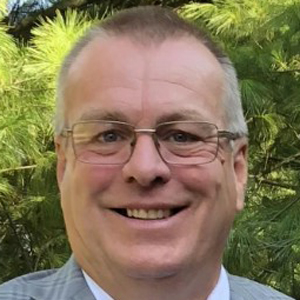
A Whitehall broadcaster known for his love of radio and sprots, Michael “Gilby” Gilbertson died Nov. 20. He was 66.
According to his obituary, Gilbertson started his radio career at WISM in Eau Claire doing play-by-play. His love for radio continued with on air positions with stations in Eau Claire, Oshkosh, and Whitehall. He also was part of a sports program with Hayes Callaghan for WQOW-TV in Eau Claire in the early ‘90’s.
Gilbertson was employed twice by WHTL radio. His most recent stint with WHTL lasted eight years as host of the Morning Ride. He also participated in sales, writing, and social media for the station.
With a love for baseball, Gilbertson was involved in setting up and playing for local teams, and coaching a variety of youth sports.
Memorial services will be held on Dec. 2 at 11 a.m. in Our Saviour’s Lutheran Church in Whitehall, with visitation on Dec. 1 from 4-7 p.m. and one hour prior to the service at the church on Tuesday.
-

 Rec Sports2 days ago
Rec Sports2 days agoFirst Tee Winter Registration is open
-
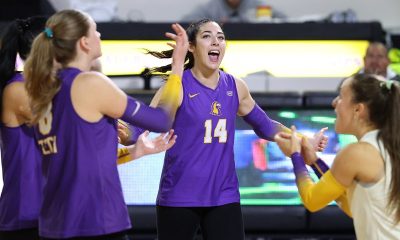
 Sports7 days ago
Sports7 days agoVolleyball Recaps – November 18
-

 Motorsports2 days ago
Motorsports2 days agoF1 Las Vegas: Verstappen win, Norris and Piastri DQ tighten 2025 title fight
-

 Rec Sports7 days ago
Rec Sports7 days agoTroy Football Need to Know; Gameday at The Vet — Georgia State Game
-

 Motorsports6 days ago
Motorsports6 days agoNiece Motorsports Signs Another New Driver for 2026
-

 Motorsports9 hours ago
Motorsports9 hours agoToni Breidinger Joins Forces With Uber in Game-Changing Partnership to Empower Women in Motorsports
-

 Rec Sports6 days ago
Rec Sports6 days agoLong Beach Poly Girls’ Basketball Preview – The562.org
-

 NIL7 days ago
NIL7 days agoHow Every Contender Can Still Make (or Miss) the College Football Playoff
-

 Sports6 days ago
Sports6 days agoEdwards, Waters, Norquist Receive MIAC Elite 22 Award
-
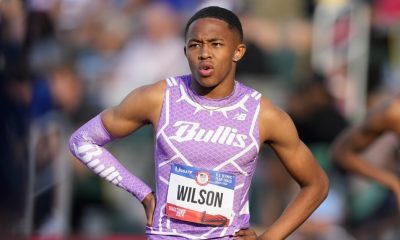
 Sports7 hours ago
Sports7 hours agoOlympic gold medalist Quincy Wilson signs with Maryland track and field program




































